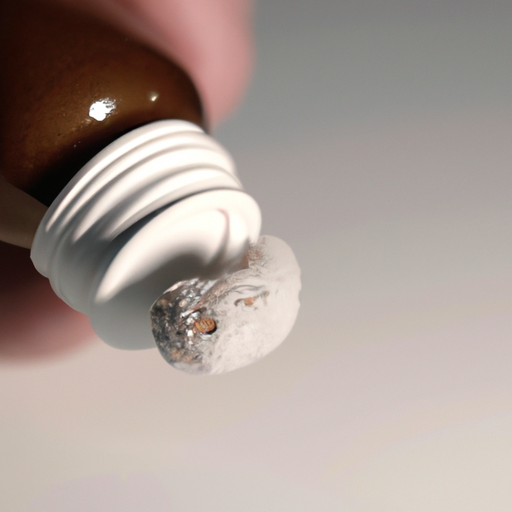
Beta-Alanine Itch
-
Contents
- 1 What Causes Beta-Alanine Itch and How Can You Treat It?
- 2 How to Avoid Beta-Alanine Itch When Supplementing with Beta-Alanine
- 3 The Benefits of Beta-Alanine and How to Minimize the Risk of Itch
- 4 Exploring the Link Between Beta-Alanine and Skin Irritation
- 5 Understanding the Science Behind Beta-Alanine Itch and How to Manage It
- 6 Q&A
Table of Contents
- What Causes Beta-Alanine Itch and How Can You Treat It?
- How to Avoid Beta-Alanine Itch When Supplementing with Beta-Alanine
- The Benefits of Beta-Alanine and How to Minimize the Risk of Itch
- Exploring the Link Between Beta-Alanine and Skin Irritation
- Understanding the Science Behind Beta-Alanine Itch and How to Manage It
- Q&A
Beta-Alanine Itch is a condition that affects many people who take supplements containing beta-alanine. It is characterized by an intense itching sensation that can be quite uncomfortable and distracting. While the exact cause of this condition is unknown, it is believed to be related to the body’s reaction to the beta-alanine molecule. Fortunately, there are ways to manage and reduce the symptoms of Beta-Alanine Itch. This article will provide an overview of the condition, its causes, and potential treatments.
What Causes Beta-Alanine Itch and How Can You Treat It?
Beta-alanine itch is a common side effect of taking beta-alanine supplements. It is caused by the release of histamine, a chemical that is released by the body in response to an allergen or irritant. The histamine causes the skin to become itchy and flushed.
The best way to treat beta-alanine itch is to reduce the amount of beta-alanine you are taking. If you are taking a supplement, reduce the dosage or switch to a different supplement. If you are taking beta-alanine as part of a pre-workout, reduce the amount of beta-alanine in the mix.
If the itch persists, you can try taking an antihistamine such as diphenhydramine or loratadine. These medications can help reduce the itching and flushing associated with beta-alanine itch.
If the itch is severe, you may need to see a doctor. They may prescribe a topical steroid cream or oral steroid to reduce the inflammation and itching.
In addition to reducing the amount of beta-alanine you are taking, you can also try to reduce your exposure to other allergens or irritants. This may include avoiding certain foods, wearing protective clothing, and avoiding contact with certain chemicals.
By reducing your exposure to allergens and irritants, you can help reduce the severity of beta-alanine itch.
How to Avoid Beta-Alanine Itch When Supplementing with Beta-Alanine
Beta-alanine is a popular supplement used by athletes and bodybuilders to improve performance and increase muscle mass. However, many people who take beta-alanine experience an uncomfortable side effect known as the “beta-alanine itch.” This itch is caused by the release of histamine, a chemical that is released when the body breaks down beta-alanine. Fortunately, there are several steps you can take to avoid this unpleasant side effect.
First, start with a low dose of beta-alanine and gradually increase it over time. This will allow your body to become accustomed to the supplement and reduce the likelihood of experiencing the beta-alanine itch. Additionally, it is important to take beta-alanine with food, as this will help to slow down the absorption rate and reduce the amount of histamine released.
Another way to avoid the beta-alanine itch is to take a histamine-blocking supplement, such as quercetin or bromelain. These supplements can help to reduce the amount of histamine released when taking beta-alanine, thus reducing the likelihood of experiencing the itch.
Finally, it is important to stay hydrated when taking beta-alanine. Staying hydrated helps to flush out the histamine from your body, thus reducing the likelihood of experiencing the beta-alanine itch.
By following these simple steps, you can reduce the likelihood of experiencing the beta-alanine itch when supplementing with beta-alanine. However, if you do experience the itch, it is important to stop taking the supplement and consult your doctor.
The Benefits of Beta-Alanine and How to Minimize the Risk of Itch
Beta-alanine is an amino acid that has been gaining popularity in recent years due to its potential health benefits. It is found naturally in the body and is also available as a dietary supplement. Studies have shown that beta-alanine can improve physical performance, reduce fatigue, and increase muscle mass. However, it can also cause a side effect known as paresthesia, which is an itchy or tingling sensation in the skin.
The primary benefit of beta-alanine is its ability to improve physical performance. It works by increasing the levels of carnosine in the muscles, which helps to buffer lactic acid buildup during exercise. This can lead to improved endurance and strength, as well as faster recovery times. Additionally, beta-alanine has been shown to increase muscle mass and reduce fatigue.
Despite its potential benefits, beta-alanine can cause a side effect known as paresthesia. This is an itchy or tingling sensation in the skin that can be uncomfortable and distracting. Fortunately, there are several ways to minimize the risk of this side effect.
First, it is important to start with a low dose of beta-alanine and gradually increase it over time. This will allow the body to adjust to the supplement and reduce the risk of paresthesia. Additionally, it is important to take beta-alanine with food, as this can help to reduce the risk of side effects. Finally, it is important to drink plenty of water when taking beta-alanine, as this can help to flush out any excess from the body.
In conclusion, beta-alanine can be a great supplement for improving physical performance and increasing muscle mass. However, it can also cause a side effect known as paresthesia. Fortunately, there are several ways to minimize the risk of this side effect, such as starting with a low dose, taking it with food, and drinking plenty of water. By following these tips, you can enjoy the benefits of beta-alanine without the risk of itch.
Exploring the Link Between Beta-Alanine and Skin Irritation
Beta-alanine is an amino acid that is commonly used as a dietary supplement to improve athletic performance. However, recent studies have suggested that it may also be linked to skin irritation. This article will explore the potential connection between beta-alanine and skin irritation, as well as the potential implications for those who use the supplement.
Beta-alanine is an amino acid that is naturally produced in the body and is also found in some foods, such as poultry, beef, and fish. It is also available as a dietary supplement, and is often used to improve athletic performance. However, recent studies have suggested that it may also be linked to skin irritation.
One study found that beta-alanine can cause skin irritation in some people. The study found that the irritation was most likely caused by the breakdown of the amino acid in the skin, which can lead to an increase in pH levels. This can cause the skin to become dry and itchy.
In addition, another study found that beta-alanine can cause an increase in the production of histamine, which is a chemical that can cause inflammation and itching. This can lead to further skin irritation.
It is important to note that not everyone who takes beta-alanine will experience skin irritation. However, those who do may want to consider reducing their dosage or discontinuing use of the supplement. Additionally, it is important to speak to a doctor before taking any dietary supplement, as some supplements can interact with medications or have other potential side effects.
In conclusion, recent studies have suggested that beta-alanine may be linked to skin irritation. Those who take the supplement should be aware of the potential risks and speak to a doctor before taking any dietary supplement.
Understanding the Science Behind Beta-Alanine Itch and How to Manage It
Beta-alanine is a naturally occurring amino acid found in the body and is a popular supplement used by athletes and bodybuilders to improve performance. However, it can also cause an uncomfortable and irritating skin sensation known as the “beta-alanine itch.” This article will explain the science behind the beta-alanine itch and provide tips on how to manage it.
The beta-alanine itch is caused by the release of histamine, a chemical that is released by the body in response to an allergen or irritant. When beta-alanine is ingested, it is broken down into histidine and carnosine, both of which are precursors to histamine. The histamine then binds to receptors in the skin, causing an itchy sensation.
The intensity of the itch can vary from person to person, but it is usually described as a burning or tingling sensation. It can be localized to one area of the body or spread across the entire body. It can last anywhere from a few minutes to several hours.
The best way to manage the beta-alanine itch is to reduce the amount of beta-alanine you are taking. Start by reducing your dosage by half and see if that helps. If not, you can try reducing it further or discontinuing use altogether.
You can also try taking antihistamines to reduce the itch. These medications work by blocking the histamine receptors in the skin, thus reducing the itch. However, it is important to note that antihistamines can cause drowsiness, so it is best to take them at night before bed.
Finally, you can try taking beta-alanine with food. Eating a meal before taking the supplement can help reduce the amount of histamine released in the body, thus reducing the itch.
In conclusion, the beta-alanine itch is caused by the release of histamine in response to the supplement. The best way to manage the itch is to reduce the amount of beta-alanine you are taking, take antihistamines, or take the supplement with food. By following these tips, you can reduce the intensity of the itch and enjoy the benefits of beta-alanine without the discomfort.
Q&A
1. What is Beta-Alanine Itch?
Beta-Alanine itch is a tingling sensation that some people experience when taking beta-alanine supplements. It is caused by the release of histamine, which is a chemical that is released when the body is exposed to an allergen.
2. What are the symptoms of Beta-Alanine Itch?
The most common symptom of beta-alanine itch is a tingling sensation on the skin, usually on the face, neck, chest, and arms. Other symptoms may include redness, itching, and swelling.
3. Is Beta-Alanine Itch dangerous?
No, beta-alanine itch is not dangerous and usually resolves on its own. However, if the itching persists or becomes severe, it is important to seek medical attention.
4. How can Beta-Alanine Itch be prevented?
Beta-alanine itch can be prevented by taking beta-alanine supplements with food or with a meal that contains fat. This helps to reduce the release of histamine and can help to prevent the itching.
5. What should I do if I experience Beta-Alanine Itch?
If you experience beta-alanine itch, it is important to stop taking the supplement and seek medical attention. You may also want to try taking the supplement with food or with a meal that contains fat to reduce the release of histamine.Beta-alanine itch is a common side effect of taking beta-alanine supplements. While it is not dangerous, it can be uncomfortable and distracting. Fortunately, there are several ways to reduce the itch, such as taking smaller doses, taking the supplement with food, and using a topical cream. With the right approach, beta-alanine can be a safe and effective supplement for improving athletic performance.

